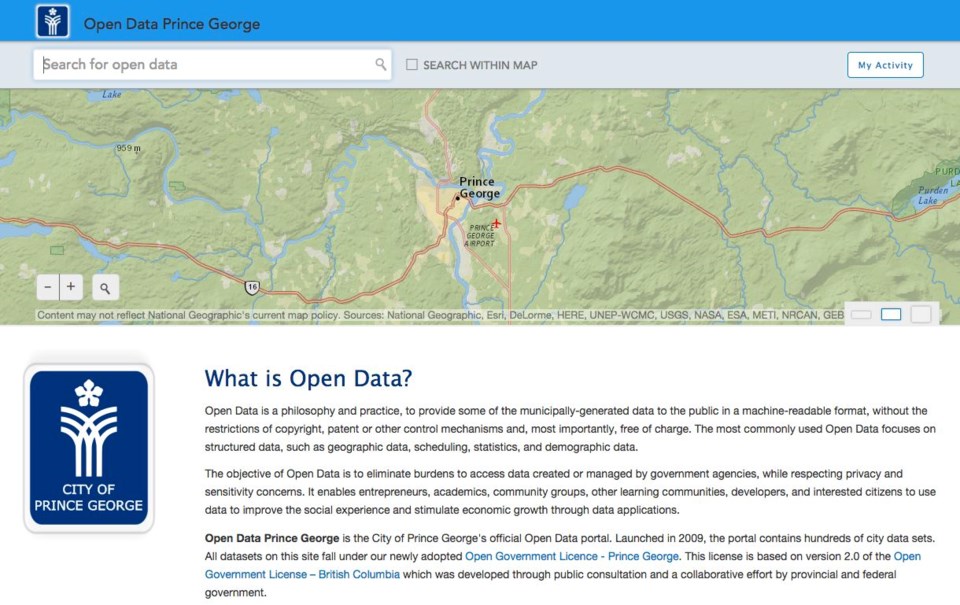With the launch of its open data portal Monday, Prince George has joined a small group of B.C. communities committed to putting information onto the screens of its citizens.
"The portal, part of the City's Open Data Program, provides city staff with tools and processes to improve government transparency and could provide aid for future economic development opportunities,"the release said.
The city's IT services started working on the website, opendata.princegeorge.ca, in the fall of 2015.
The home page has a number of icons to help users search for the type of data they want: from infrastructure to property information, transportation to parks and government to topography.
It should give the average citizen the ability to run their own reports based on their interests.
"This initiative is very important as it is tied to several of council's key focus areas, such as reconnecting with an inclusive and proud community, collaborating with partners to enhance the quality of life for residents, and improving communication by fostering a service culture and ensuring transparency," said Mayor Lyn Hall in the statement.
The Public Sector Digest's 2015 Open Cities Index report ranks Canada's top ten cities, calling them "trailblazers, working to develop the most efficient and effective open data programs despite limited resources."
Most municipalities are a ways off from filling the dearth of local data; the 34 places analyzed had an overall average score of only 25 per cent. The report, the first of its kind, only mentions two B.C. cities - Vancouver and Surrey - but notes municipalities have made some strides in the "readiness" category, or its abilities to implement an open data program.
When they do, like Prince George has, the digest argues three things happen: it creates efficiencies externally, internally and interdepartmentally; other firms and markets use the data, which doesn't necessarily create an obvious benefit; and finally, those same firms "begin to produce new products and services, helping to solve essential community problems, all using the data that was posted online."
Hall suggested exactly that in his statement Monday.
"I would especially encourage those interested in innovation and technology, such as developers, to investigate this and see what creative ideas they can come up with to improve and enhance the lives of residents," he said.
The catch, the report said, is that data must be free, machine readable, and up to date or it "cannot be used to build the most robust applications."
"As open data begins to break down the silos that exist within government, this improves the effectiveness of city programs, departments, and applications," the report said.
The city said the portal is accessible to all devices for viewing and downloading. The city based the type of data it made available on public interest in reports, interviews with staff about common requests and a review of other municipal open data catalogs. The data sets it highlighted are city staff compensation over $75,000; active business licenses; active building permits; active development permits; and awarded contracts and suppliers over $25,000.



